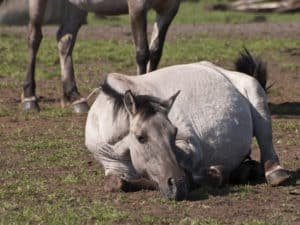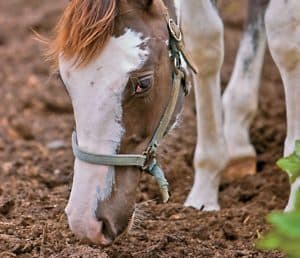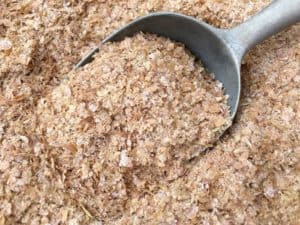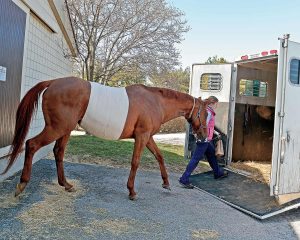
Cribbing and Colic in Horses: What’s the Link?
After years of speculating that colic occurs more frequently in horses that crib, researchers have finally provided consistent data confirming this association.

After years of speculating that colic occurs more frequently in horses that crib, researchers have finally provided consistent data confirming this association.

Don’t take a wait-and-watch approach when it comes to this common cause of colic in older horses. Read more about lipomas in The Horse’s Research Roundup 2023 issue.

Taking these steps might help protect your mare and her foal.

Decipher fact vs. fiction when it comes to the complicated world of feeding horses.

While steeped in tradition, feeding bran mashes can cause GI distress in horses. Learn why, and discover alternatives.

Knowing the causes of colic in horses, treatment options, and why referral might be necessary can give your horse a better outcome in a colic emergency.

The stress of surgery and the management changes that follow can cause gastric ulcers in horses. An equine nutritionist discusses possible solutions.

Horses living in areas with sandy soil are at a greater risk of sand colic and impactions. An equine nutritionist offers advice on mitigating this risk.

Learn about 14 kinds of equine colic and their prognoses.

Discover what you should do to prepare for a colic episode, considerations to make, and things to keep in mind after surgery.

7 things to know before a horse colics, so you can maximize the chances of a successful outcome.

Researchers found that many respondents either felt like they already had good colic emergency plans in place, or they had no intention of creating them.

Sand accumulation in the horse’s gut can lead to obstructions, irritation, and signs of colic, weight loss, and diarrhea. Read more in the Spring 2023 issue of The Horse.

Find out how veterinarians prevent and treat this painful condition.

When faced with the decision of whether or not to send your senior horse into colic surgery, consider these factors.

Timely decision-making could be the life-saving factor for colicking horses.
Stay on top of the most recent Horse Health news with
© 2022 Copyright Statement dolor sit amet, consetetur sadipscing User Terms, sed diam nonumy eirmod tempor invidunt ut labore et dolore magna aliquyam erat, sed diam voluptua. At vero eos et accusam et justo duo dolores et ea rebum. Stet clita kasd gubergren, no sea takimata sanctus est Lorem ipsum dolor sit amet.
"*" indicates required fields